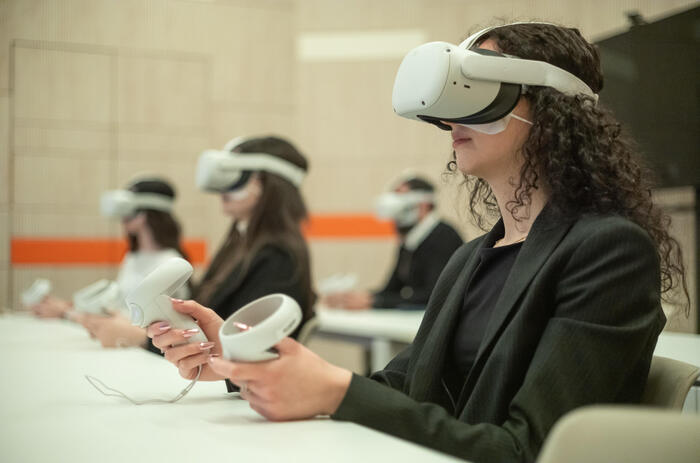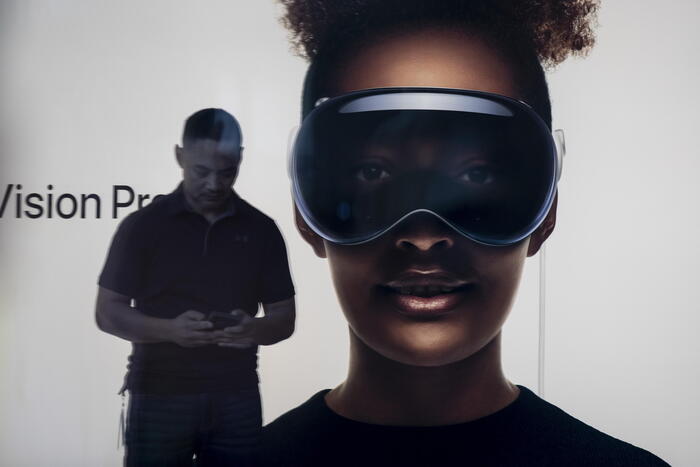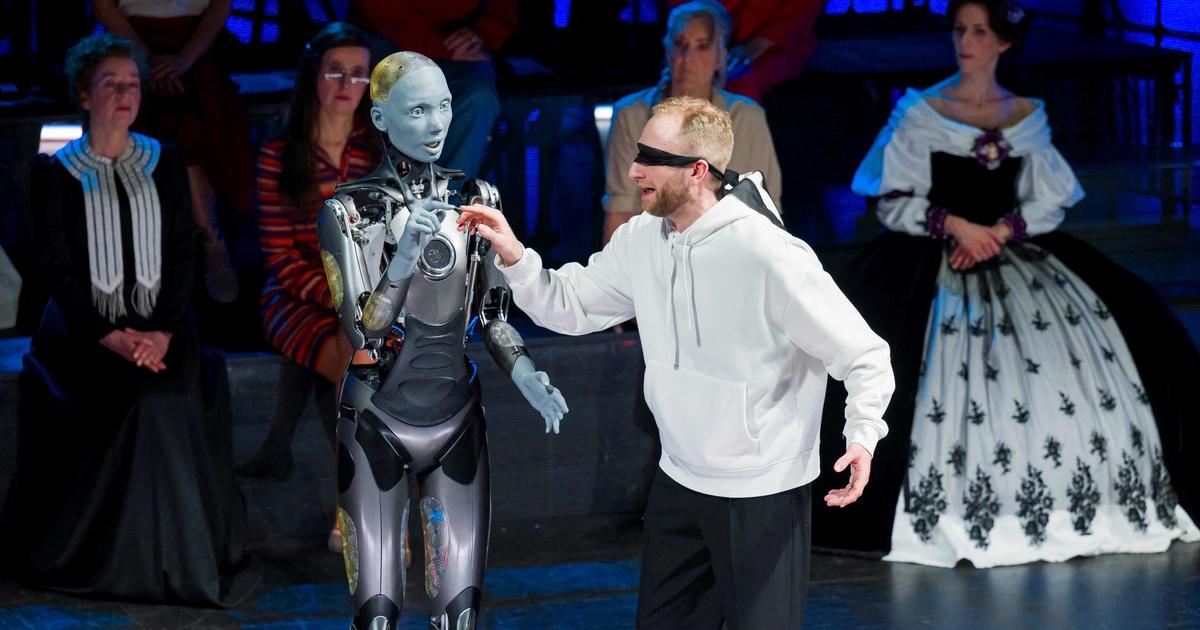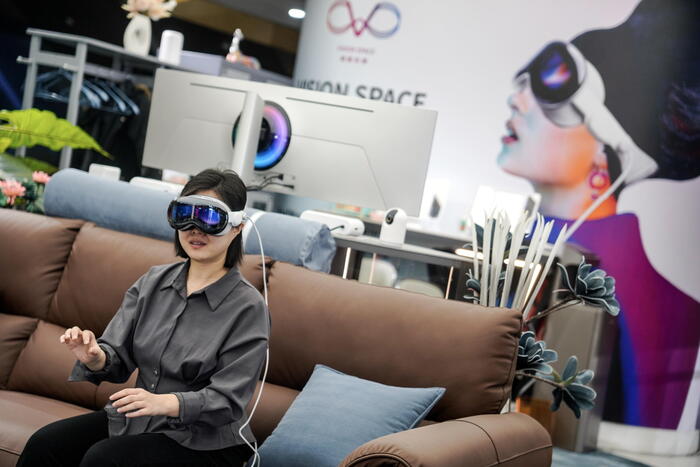At what point in our lives did interest in the metaverse skyrocket?
Exactly: during the Great Confinement of 2020. With everyone locked up at home, having a parallel life in a virtual and immersive space was not a bad plan.
It was in this context that Mark Zuckerberg changed his name to his company in 2021: Facebook would now be Meta because his big bet was going to be the metaverse.
Now that we live without confinement, and we are not even required to wear a mask on the bus, the signs are accumulating that this virtual reality is not going to be the huge business it seemed.
Even Zuckerberg knows it, who has suffered a setback on the Stock Market, who has tightened his belt on his staff and has had to clarify that virtual reality is not his only bet.
But metaverses existed before Facebook wanted to take over that business:
The movie
We Met in Virtual Reality,
on HBO Max, it's set in one of those metaverses, called VRChat, and it looks like something out of a cartoon fantasy.
But it is not, but something much more disconcerting: it is a documentary recorded within that virtual world at the end of 2020, which generated interest at the Sundance festival a year ago and is signed by a director in his twenties: the British Joe Hunting.
VRChat is a game created in 2014 for users to travel, putting on a helmet with glasses like Oculus, to a universe with manga aesthetics.
There's also a less immersive desktop version that doesn't require a headset.
At the worst of the pandemic, Joe Hunting plunged into that world with his own avatar and his virtual camera to portray his people.
And he finds it hard to believe that they are not acting, that they are all ordinary citizens escaping the harsh reality like this.
It is easy to get carried away by prejudices, to think that geeks, bored teenagers or social misfits inhabit that place, that this is the only way out for very lonely people.
Hunting wants to refute all of that.
To show that this virtual reality is a reality, that exciting things happen, that people manage to defeat loneliness, make good friends and even find their better half.
In the VRChat spaces that the film runs through, there are many communities, but they are not closed.
There is a group that studies the language of the deaf, there is a belly dance school, there are gyms, there are discos and bars where they serve huge beers that neither make you drunk nor fat.
There are birthday parties and the New Year's Eve countdown is made at the end of the unfortunate year 2020, several times as midnight strikes in each area of the world.
There are friendships and there are romances in which the young Hunting fixes his virtual camera.
Quite a few of the female avatars are sexy and in short skirts;
quite a few of the males are athletic and muscular;
there are also people of indefinite gender.
Others choose shocking or childish aspects: a teddy bear, Kermit the frog or characters from Mario Bros.
escape from oneself
Even the most open-minded viewer will often be puzzled, but the motivations of the players are gradually understood, if we call this a game.
One, of course, is to escape from a depressing reality, that of the 2020 confinements. But there is much more: escaping from yourself, from your life, from your context, from your position in society, from your insecurities, perhaps from limitations physical.
Several people openly express that they don't like being who they are out there.
This metaverse, by the way, shows its technical imperfections.
Those who hug seem to cross their arms, the kisses are not very natural, there are those who have difficulties executing simple movements.
But that doesn't matter: the only thing that matters is the feeling of belonging to a community, almost to a big family.
We heard very revealing testimonials about that.
A woman tells that she had suffered a family tragedy, and everyone she knew saw death in her.
To make matters worse, she was an alcoholic, and she got rid of that addiction by getting hooked on virtual reality, surely it was less harmful.
She claims that her virtual friends have saved her life.
Another woman makes a fiery defense of love between those who cannot be touched: it is a purer feeling, because you fall in love with the personality.
The question is inevitable: is your avatar you?
We tend to think not, but there are arguments in favor.
One of the participants explains it this way: “You can be who you have always wanted to be.
And, somehow, start from scratch.
Nobody knows who you are, or who you have been.
They only know who you are now.
You are free to be yourself."
They feel liberated from their bodies and how others see them.
That is more attractive, it is clear, for people with self-esteem problems, with disabilities or with alternative sexual identities.
There they find acceptance.
A participant wonders if in the world of physical interactions you really care so much for others: for your cashier, for the office cleaning staff, for the neighbor with whom you share an elevator?
The wedding with the ending missing
Among the romantic stories, those that unite people separated by thousands of kilometers, the closure of borders and confinements, two stand out.
In one, the couple dreams of meeting in real life: they take a plane, they are both very nervous at an airport, they finally hug... but that also happens in virtual reality.
That is, they pretend that this is not a simulation (is the rest?).
In another, we witness the preparations and the ceremony of a wedding in style.
It is very emotional.
But we are missing the end.
The documentary ends and, since there is not a single shot in the real world, you do not know what happened to those people who felt such ties embedded in their avatars when the covid restrictions were lifted.
Did they really meet at an airport months later?
And if it was so, seeing himself in his mortal flesh,
did they like each other?
Did the VRChat newlyweds consider themselves married when they exited the game?
Did they really consider getting married?
In other words, is the love of the metaverse love?
Is love possible stripped of our bodies, of our contexts and of our lives, without physical or even visual contact?
Is this an artificial, fictional love?
Or is it, as they say, a purer and freer love, almost spiritual?
The point of the movie is that you don't answer so quickly.
Don't judge
a purer and freer love, almost spiritual?
The point of the movie is that you don't answer so quickly.
Don't judge
a purer and freer love, almost spiritual?
The point of the movie is that you don't answer so quickly.
Don't judge
One element to question
We met in virtual reality
is that so much tenderness is hard to believe.
This is a respectful, supportive and inclusive universe, somewhat naive.
Empathic.
The question is if everyone in VRChat is that nice or if they don't show us the whole truth.
Yes, there are also, as in all corners of the internet, trolls, stalkers, lynchers, thugs and fanatics.
Those who have visited the metaverse (in tests) of Meta tell things that we do not see in this documentary.
That there are decorations where there is no one and nothing happens, that you greet others and they don't answer you, that there are plenty of children alone and sinister people flutter around them, that the avatars still don't have legs.
The latter will be to prevent sexual harassment: many women have denounced episodes in which they were violated, not surprisingly, knowing Facebook's history of toxic attitudes.
We know that what Zuckerberg intends (and investors don't believe him) is to take the activities of the professional environment there, to his metaverse.
And that's not seductive.
Now we understand something of the charm of VRChat, where love is sought so much.
At least there you escape.
You have not come to the metaverse to continue your routines.
You can follow EL PAÍS TELEVISIÓN on
or sign up here to receive
our weekly newsletter















